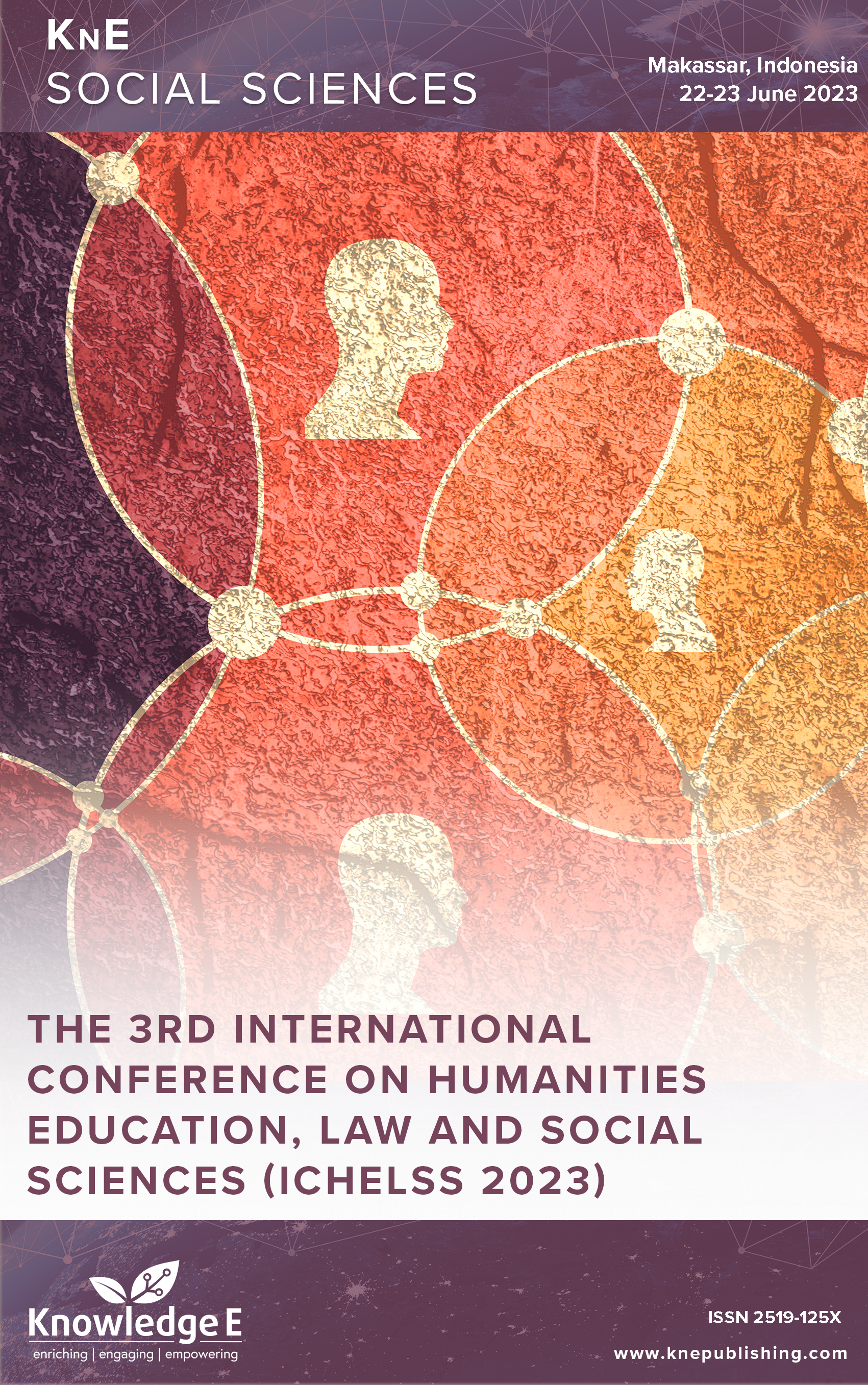Implementation of Service Marketing Mix Strategy to the Formation of Service Value and its Implications for Student Trust
DOI:
https://doi.org/10.18502/kss.v9i2.14941Abstract
This study investigates the implementation of service marketing mix strategies and their implications for the formation of service value and student trust within educational institutions. As the higher education landscape becomes increasingly competitive, institutions are seeking innovative approaches to enhance the quality of their services and build enduring relationships with their students. This study aims to find out, analyze, and examine the implementation of service marketing mix strategies, service value, and student trust, as well as the effect of implementing the service marketing mix strategy on service value and its implications on good student trust. This study applies a descriptive qualitative design. Based on the analysis of the research results, the following findings were obtained: the implementation of the service marketing mix strategy is in the fairly good category, the service value is in the fairly good category, and student trust is in a good category. The service marketing mix strategy positively impacts the value of services and its application to student trust.
Keywords: service, marketing mix strategy, service value,; student trust
References
E. A. Tiryakian dan N. Nevitte, “Nationalism and modernity,” in New nationalisms of the developed West, Routledge, 2020, hal. 57–86. DOI: https://doi.org/10.4324/9781003008453-5
Law of the Republic of Indonesia Number 12 Year 2012 on Higher Education, “Law of the Republic of Indonesia Number 12 Year 2012 on Higher Education,” no. 15. hal. 1–24, 2012.
E. L. Widarni dan S. Bawono, Human Capital Investment: For Better Business Performance. BookRix, 2021.
Preamble to the 1945 Constitution of the Republic of Indonesia, “Preamble to the 1945 Constitution of the Republic of Indonesia.” 1945.
A. R. A. Arokiasamy dan A. Tamah, “A Study on Shaping Academic Leadership in Thailand’s Public Universities: The Role of Legislation and Organizational Culture,” Int. J. Educ. Adm. Manag. Leadersh., hal. 5–14, 2021. DOI: https://doi.org/10.51629/ijeamal.v2i1.15
A. P. Carnevale, J. Strohl, N. Ridley, dan A. Gulish, “Three educational pathways to good jobs: High school, middle skills, and bachelor’s degree,” 2018.
Gilal FG, Ashraf Z, Gilal NG, Gilal RG. dan N. A. Channa, “Promoting environmental performance through green human resource management practices in higher education institutions: A moderated mediation model,” Corp. Soc. Responsib. Environ. Manag., vol. 26, no. 6, hal. 1579–1590, 2019. DOI: https://doi.org/10.1002/csr.1835
S. B. Mishra dan S. Alok, “Handbook of research methodology.”. Educreation publishing; 2022.
Dzimińska M, Fijałkowska J. dan Ł. Sułkowski, “Trust-based quality culture conceptual model for higher education institutions,” Sustainability, vol. 10, no. 8, hal. 2599, 2018. DOI: https://doi.org/10.3390/su10082599
K. L. Keller dan P. Kotler, “Holistic marketing: a broad, integrated perspective to marketing management,” in Does Marketing Need Reform?: Fresh Perspectives on the Future, Routledge, 2015, hal. 308–313.
S. Shavitt dan A. J. Barnes, “Culture and the consumer journey,” J. Retail., vol. 96, no. 1, hal. 40–54, 2020. DOI: https://doi.org/10.1016/j.jretai.2019.11.009
N. M. Puccinelli, R. C. Goodstein, D. Grewal, R. Price, P. Raghubir, dan D. Stewart, “Customer experience management in retailing: understanding the buying process,” J. Retail., vol. 85, no. 1, hal. 15–30, 2009. DOI: https://doi.org/10.1016/j.jretai.2008.11.003
R. Yelkur, “Customer satisfaction and the services marketing mix,” J. Prof. Serv. Mark., vol. 21, no. 1, hal. 105–115, 2000. DOI: https://doi.org/10.1080/15332969.2000.9985409
G. Armstrong, S. Adam, S. Denize, dan P. Kotler, Principles of marketing. Pearson Australia, 2014.
E. Constantinides, “The marketing mix revisited: towards the 21st century marketing,” J. Mark. Manag., vol. 22, no. 3–4, hal. 407–438, 2006.https://doi.org/10.1362/026725706776861190. DOI: https://doi.org/10.1362/026725706776861190
J. R. Evans dan R. L. Laskin, “The relationship marketing process: a conceptualization and application,” Ind. Mark. Manag., vol. 23, no. 5, hal. 439–452, 1994. DOI: https://doi.org/10.1016/0019-8501(94)90007-8
P. G. Patterson dan T. Ward, “Relationship marketing and management,” Handb. Serv. Mark. Manag., hal. 317–342, 2000. DOI: https://doi.org/10.4135/9781452231327.n22
Izquierdo CC, Cillan JG. dan S. S. M. Gutiérrez, “The impact of customer relationship marketing on the firm performance: a Spanish case,”. J Serv Mark. 2005.
A. Ravald dan C. Grönroos, “The value concept and relationship marketing,” Eur. J. Mark., vol. 30, no. 2, hal. 19–30, 1996. DOI: https://doi.org/10.1108/03090569610106626
F. H. Beuren, M. G. G. Ferreira, dan P. A. C. Miguel, “Product-service systems: a literature review on integrated products and services,” J. Clean. Prod., vol. 47, hal. 222–231, 2013. DOI: https://doi.org/10.1016/j.jclepro.2012.12.028
W. Richard, Operations management. 2003.
P. Kotler, “Philip Kotler: some of my adventures in marketing,” J. Hist. Res. Mark., 2017.https://doi.org/10.1108/JHRM-11-2016-0027. DOI: https://doi.org/10.1108/JHRM-11-2016-0027

